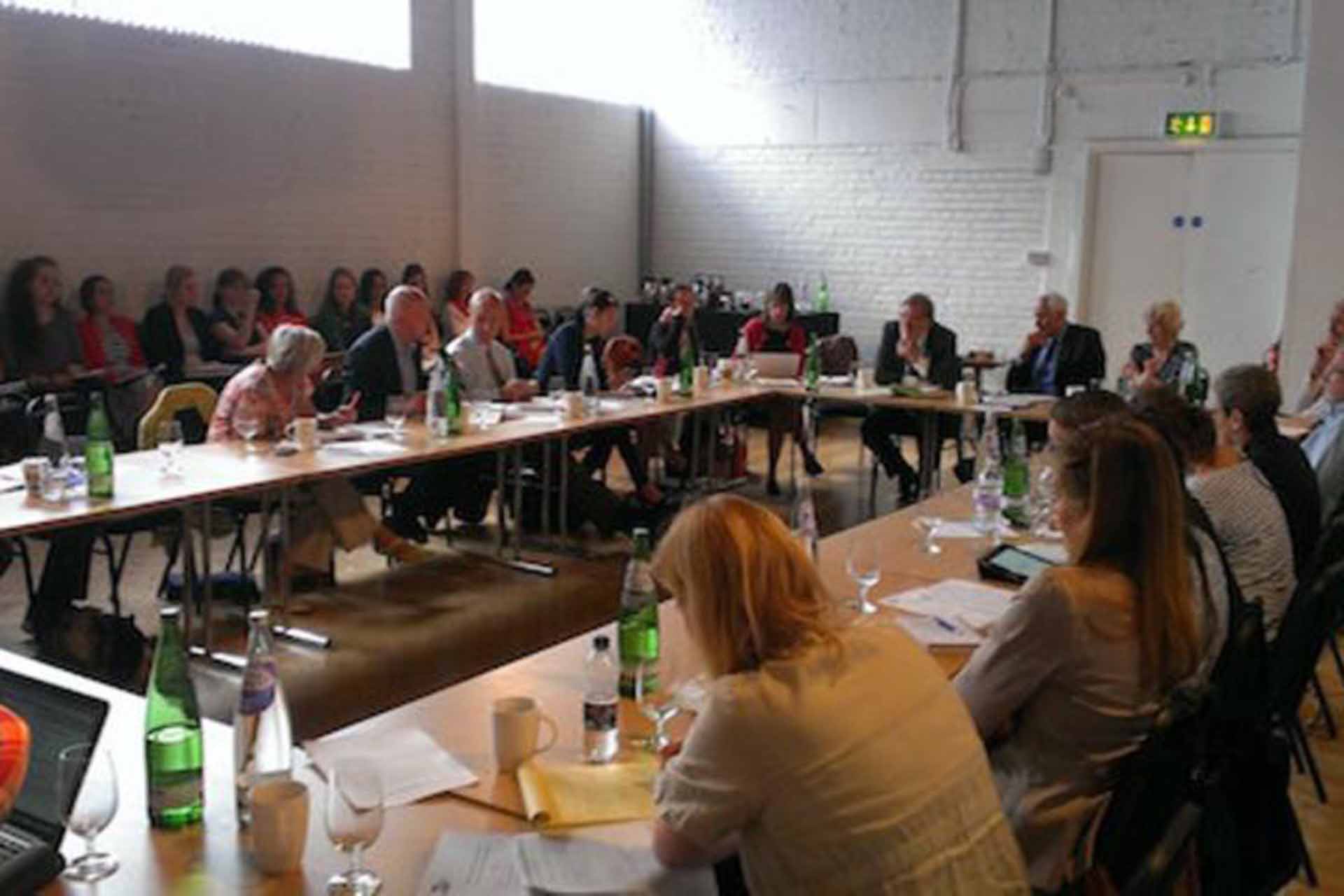
Partnerships are essential in the fight against human trafficking and modern slavery. Organisations throughout the UK, of all different sizes, are working to contribute to the eradication of exploitation: from charities providing invaluable support to survivors; to international NGOs raising awareness and calling for government action; to local authorities and police units. It is vital that these organisations do not operate in isolation, but that they explore opportunities to collaborate and coordinate their actions wherever possible.
No one organisation has all the knowledge, skills or resources to bring an end to human trafficking. The formation of partnerships to align the complementary skills and strengths of various individuals and organisations is, therefore, crucial to establishing an anti-slavery movement which is truly effective. Partnerships allow for the sharing of the key information about the nature and scale of the problem as well as the exchange of best practice, thereby filling any gaps in knowledge or skill which might otherwise exist.
Collaboration also allows organisations to speak with a collective voice. In attempting to urge governments to take decisive action to disrupt human trafficking, by drawing together a diverse range of experience and expertise it is possible to convey a more convincing argument and one which is harder to ignore.
Collaboration is not always easy. It is, however, extremely rewarding. Indeed, this process of building effective partnerships is at the centre of the Human Trafficking Foundation’s work. The Foundation grew out of the work of the All-Party Parliamentary Group on Human Trafficking and Modern Slavery and works to combat modern slavery by informing parliamentarians, raising public awareness, and coordinating a united voice amongst charities and other organisations in calling for improvements to government policy and legislation. The APPG is itself a fine example of collaboration; bringing together politicians of all political backgrounds to learn what they can each do to contribute to fighting modern slavery.
In recent years the Foundation’s key priority was the creation of a Modern Slavery Act, to establish the UK as a world leader in tackling modern slavery. As the Bill progressed through Parliament, the Foundation played a pivotal role in scrutinising and refining the provisions until the Bill became an Act of Parliament in March 2015. The Foundation drew upon the insights and experiences of frontline agencies both within the UK and other EU member states to inform and mobilise policy-makers.
The Foundation’s success is due in no small part to our partnerships with the many agencies and community and faith groups working ‘at the coal face’ to combat modern slavery and to support survivors of trafficking. Through our Advisory Forum, we bring together approximately 95 organisations from across the UK. The Forum meets four times a year and provides an opportunity for those of all different backgrounds to come together, to build relationships, share information and best practice, flag up emerging issues and present a unified voice for the anti-slavery community. We have had the pleasure of being joined at the Forum by, amongst others, the UK’s first Independent Anti-Slavery Commissioner, the head of the Home Office’s Modern Slavery Unit, and the Co-Chairs of All-Party Parliamentary Group Fiona Mactaggart MP and Baroness Butler-Sloss. The Forum provides a unique space for dialogue. Discussions at these meetings enable frontline practitioners to remain informed of decisions taken at the highest level of government, whilst policy-makers gain an insight into the experiences of those working daily to support survivors and raise awareness.
It was from discussions within the Advisory Forum that HTF identified an important gap: a lack of coherent care standards for victims of trafficking, resulting in significant discrepancies in the level of care available throughout the country. The Forum formed a working group of twelve partners to address this specific issue to gather examples of best practise and developing new approaches. The resulting Trafficking Survivor Care Standards were published by HTF in 2014 and provide a blueprint and recommended guidance for organisations providing care to adult survivors of modern slavery. In 2015, they were endorsed by the Independent Anti-Slavery Commissioner in 2015.
In addition, our research project, “Life Beyond the Safe House for Survivors of Modern Slavery in London”, examined the support available to victims of human trafficking after they exit safe accommodation and Government funded support scheme. Unfortunately it was found that a lack of long-term support often leaves victims of exploitation vulnerable to further harm and, in some instances, re-trafficking.
We also bring people together through our National Network Co-ordinators’ Anti-Slavery Forum (NNCF). The NNCF is composed of co-ordinators from the various anti-slavery and human trafficking multi-agency networks and partnerships from across England and Wales and aims to promote inter-regional cooperation and sharing of best practice nationally within the UK. Each co-ordinator is able to provide expert knowledge of the nature of the problems within the regions they represent as well as the initiatives and activities which are attempting to reduce the prevalence of vulnerability and exploitation.
Thanks to the efforts of campaigners and activists, working together, the UK’s approach to addressing human trafficking and modern slavery has been transformed in recent years. In November 2014, the Home Office published its Modern Slavery Strategy, of which the formation of partnerships is a key element. Much needed improvements have since been made to the legal framework with the entry into force of the Modern Slavery Act, as well as legislation in Scotland and Northern Ireland. A decisive provision within this new legislation is the creation of the office of the Independent Anti-Slavery Commissioner. The Commissioner, Kevin Hyland, recently published his Strategic Plan for 2015-2017, in which he prioritises the creation of partnerships at both the national and international level.
A meaningful attempt to address modern slavery cannot be made in isolation. The problem is too complex and far-reaching for one organisation, region or government to address. Collective action has proven to be successful in recent years. It is crucial to build upon this momentum and involve an ever-wider range of people and organisations. The infrastructure in place in the UK to deal with modern slavery has been improved greatly in recent years. However, the true success of these developments must be measured in the number of traffickers prosecuted and the number of victims rescued and empowered to gain control of their lives.


